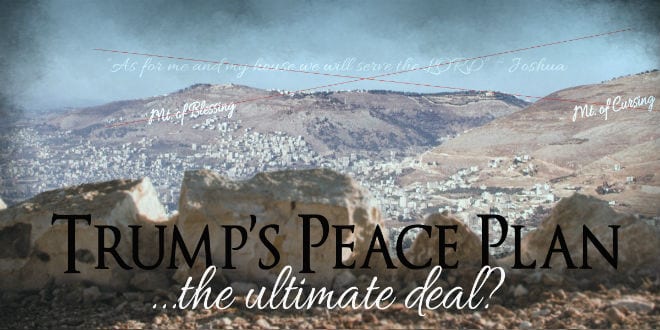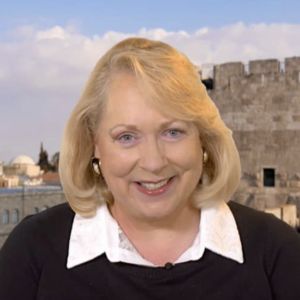U.S. Secretary of State Mike Pompeo’s upcoming visit to Jerusalem this week—to “meet with Prime Minister Benjamin Netanyahu and Speaker of the Knesset Benny Gantz … to discuss [American] and Israeli efforts to fight the COVID-19 pandemic [and] regional security issues related to Iran’s malign influence”—is encouraging.
Though nobody is buying State Department spokeswoman Morgan Ortagus’s above description of the purpose of the trip, which is assumed to be aimed at ironing out details of Israel’s intention to begin extending sovereignty over the Jordan Valley and parts of Judea and Samaria, few cast aspersions on the next part of her May 8 press release.
“The U.S. commitment to Israel has never been stronger than under President Trump’s leadership,” it reads. “The United States and Israel will face threats to the security and prosperity of our peoples together. In challenging times, we stand by our friends, and our friends stand by us.”
Nevertheless, Israeli right-wingers, such as members of Naftali Bennett’s Yamina Party, are wary. This is not because they doubt the sincerity of the current administration in Washington. On the contrary, they acknowledge that it has made good on U.S. President Donald Trump’s many pre- and post-election promises to the Jewish state.
These include moving the U.S. embassy from Tel Aviv to Jerusalem; recognizing Jerusalem as the capital of Israel; withdrawing from the 2015 Iran nuclear deal; recognizing Israeli sovereignty over the Golan Heights; halting funding to UNRWA, demanding that the Palestinian Authority cease its pay-for-slay policy; declaring that Israeli settlements are not illegal; and never calling Israel to task for defending itself through strikes on targets in Gaza and Syria.
What Bennett and the bulk of his supporters fear is the part of Trump’s “Peace to Prosperity” plan that provides for the establishment of a Palestinian state. This trepidation seemed to increase last week, following an interview that U.S. Ambassador to Israel David Friedman gave to the Israel Hayom newspaper.
In answer to the question of whether the White House would greenlight the immediate application of Israeli sovereignty over parts of Judea and Samaria, Friedman was vague about a timetable. He also set certain conditions for the move.
“[Right now] we have a conceptual map—it’s conceptual,” he said. “It’s impossible to declare sovereignty from something that was so lacking in details … When the mapping is done, and when the government of Israel agrees [to] freeze the part of construction in Area C [of Judea and Samaria] that’s not set for sovereignty—make it available for four years—and when the prime minister agrees [to] negotiate with the Palestinians on the basis of the Trump peace plan, which he’s already agreed to do, … we will recognize … sovereignty over the area that the plan contemplates as part of Israel.’ ”
Any anxiety aroused by the above should have been alleviated, if not erased, by the rest of Friedman’s remarks, particularly those indicating his skepticism about Palestinian statehood on the one hand, and his belief in the Jewish nation on the other. His basic two points were that the Palestinians only will have a state when they “become Canadians,” and that requesting that Jews relinquish places like Hebron, Shiloh, Beit El and Ariel is as unreasonable as “asking the U.S. to give up the Statue of Liberty.”
This, too, was the gist of Trump’s groundbreaking speech in January, when he unveiled his “deal of the century.”
In his address, the president warned that the Palestinians would have to take several steps before receiving American aid with which to build a flourishing economy in a demilitarized state. He explained that they would need to begin “adopting basic laws protecting human rights [and] against financial and political corruption; stopping the malign activities of Hamas, Islamic Jihad and other enemies of peace; ending the incitement of hatred against Israel; and permanently halting the financial compensation to terrorists.”
The likelihood of any of that happening within the next four years is as great as the possibility of the Palestinians morphing into Canadians.
The past month alone is illustrative.
While accepting medical training and supplies from the Jewish state throughout the coronavirus crisis, powers-that-be in Ramallah continued to encourage the slaughter of innocent Israelis. As Palestinian Media Watch (PMW) recently reported, “The P.A.’s message to carry out suicide bombings—even specifying which Israeli cities to target: Haifa and Atlit—was repeated at least four times in the last few weeks on an official P.A. TV station.”
The call to violence came in the form of a musical number, first performed at a Palestinian cultural festival in 2017, with the following lyrics: “Strap on the explosive belt/ Detonate the first in Haifa and the second in Atlit/Strap on the belt, O daughter of my land/and detonate it in front of the enemies/How sweet is the taste of Martyrdom/I have found none like it.”
Meanwhile, Arab affairs expert Ehud Ya’ari told Israel’s Channel 12 News on Monday evening that P.A. leader Mahmoud Abbas has spent the past few days in heated meetings with the PLO leadership to formulate an apt threat to Jerusalem and Washington in relation to any possible Israeli annexation moves.
According to Ya’ari, Abbas is going to announce on Thursday—after the swearing-in of the new Israeli government and during Pompeo’s visit—that the P.A. is now exempt from all commitments it has made since the signing of the 1993 Oslo Accords. This includes reneging on the “recognition of the state of Israel’s right to exist in peace and security” spelled out in a letter sent by his predecessor, arch-terrorist Yasser Arafat, to then-Israeli Prime Minister Yitzhak Rabin. As though the terrorist entity has fulfilled any of its obligations, particularly those requiring that Palestinians stop spilling Israeli blood.
Ya’ari said that Abbas is aiming to enlist the sympathy of the Arab world, the European Union and the U.S. Democratic Party, especially its likely presidential candidate, Joe Biden.
In that case, he need not waste his breath. They’re already on his side, as are Israeli leftists. Not exactly a hot news flash.
No, the novelty lies in Trump’s approach to the so-called Israeli-Palestinian conflict, which is the opposite of the failed “land for peace” paradigm.
The Israeli right must not squander the moment by adhering to a purist philosophy. Instead, it should back the plan, support the extension of sovereignty and let the Palestinians fail, as they always do.
Even a changing of the guard in D.C., which one hopes will not ensue in November, cannot alter that fact.
Pompeo certainly would agree.
Reprinted with author’s permission from Jewish News Syndicate






